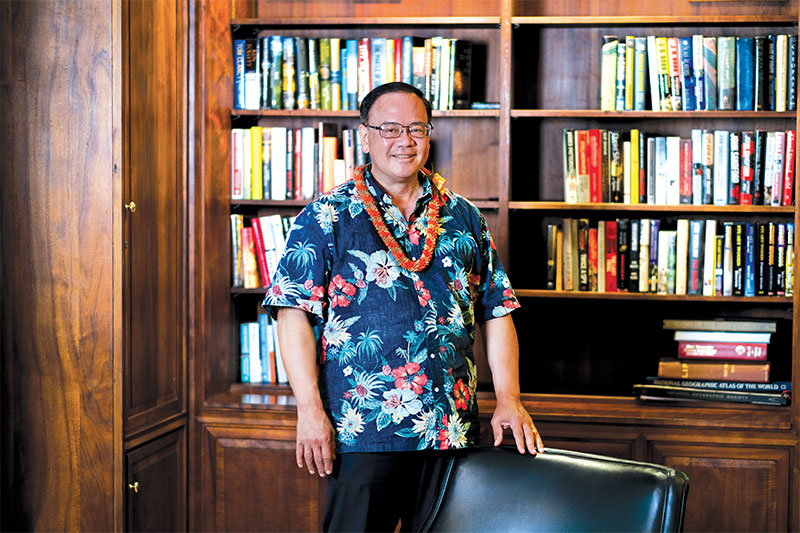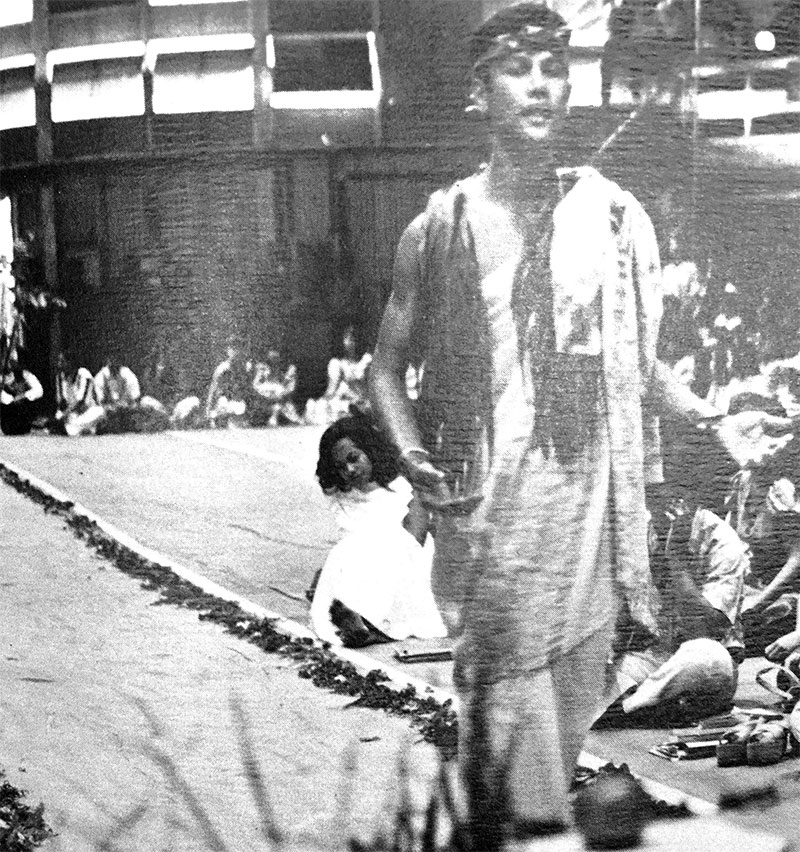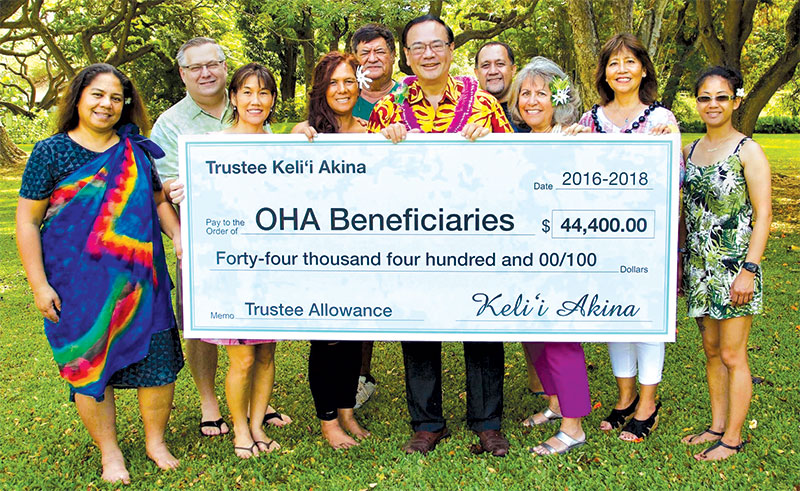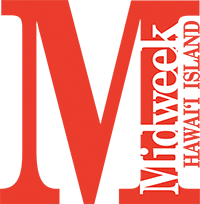A Voice For Unity

ANTHONY CONSILLIO PHOTO
By holding leadership positions at Grassroot Institute of Hawai‘i and the Office of Hawaiian Affairs, Keli‘i Akina has been able to use his voice to effect change while fulfilling an early promise of living a life in service to others.
When Keli‘i Akina was a child, he had a simple task to perform each time he returned home from school and that was to immediately grab a storybook and begin reading his little heart out.
Even before he was allowed to run off and play with siblings or friends, reading time took priority because his comprehension and verbal skills required exercise and refinement. Those were Mother’s orders. Dutifully, he’d comply by climbing on her lap and leafing through page after page, eager to practice projecting his small but developing voice.
“I can still remember her saying, ‘Read with more expression. Read louder. Pronounce better,’” recalls Akina.

Keli‘i Akina has used his voice in many ways over the years, including as a court chanter while at Kamehameha Schools in the 1970s. PHOTO COURTESY KELI‘I AKINA
While his mother’s motivation behind these reading sessions weren’t immediately apparent to him then, they became clearer toAkina in the years since. Despite not possessing a high school degree, MarianAkina was adamant that her children have a proper education and learn, in part, how to use their voices effectively and express themselves clearly.
“From the earliest time on, I’ve tried to live my life by the statement that goes, ‘Reading makes a man broad, writing makes a man precise and speech makes a man ready,’” says the man born William Keli‘i Akina, who adds that one of his mother’s proudest moments came when he developed into a champion debater and orator at his alma mater, Kamehameha Schools.
That ability to clearly articulate his thoughts through the written and spoken word has served him well in his current roles as president and CEO of the nonpartisan think tank Grassroot Institute of Hawai‘i (GIH), and trustee-at-large for the Office of Hawaiian Affairs (OHA). Equally important has been his steadfast belief that no problem is insurmountable so long as there’s room for people with opposing ideas to freely voice their opinions in pursuit of mutual understanding.

The OHA trustee-at-large makes good on a promise for greater accountability in trustee spending by returning his discretionary allowance to OHA beneficiaries. PHOTO COURTESY KELI‘I AKINA
Despite whatAkina calls “tremendous challenges facing Hawai‘i,” the public policy spokesman and community leader remains optimistic about the state’s future, simply because he has faith in his fellow citizens.
As he explains, “We have a tremendous resource, and that’s the people of Hawai‘i. Throughout my entire professional and adult career, I have believed in people, developed people and attempted to bring them together to find solutions to our challenges.
“I try to practice a little phrase called ‘e hana kākou’ — which are three little Hawaiian words that literally mean ‘let’s work together,’” continues Akina. “If we can look beyond our differences and find common ground and then expand that common ground, we can solve all of our problems and challenges.
“I’ve always believed it’s time to stop dividing ourselves and start uniting.”
Akina is in the fortunate position of being able to effect change from his vantage points at GIH — which he joined in 2013 and is celebrating its 20th anniversary this year — and OHA, which he was first elected to in 2016.
Since uniting with GIH, Akina has viewed his role as operating from “a 10,000-foot level” in search of sound public policy solutions for the state.
“We’re always working to promote individual liberty, economic freedom and accountable, limited government at Grassroot Institute, and all three of these values come together when we look at government’s management of the pandemic, for example,” says Akina, who oversees a team of 18 staffers that produces policy research, videos, editorials and cartoons as “an independent voice” representing the people of Hawai‘i.
“My heart breaks when I see the division that has risen between our citizens,” he continues. “Many of us support the important role of government in managing the crisis situation; many others of us support the protection of individual rights and the rights of businesses to operate as freely as they see fit. Unfortunately, when these two perspectives are seen as antithetical to each other, misunderstandings arise and tempers flare, and we find ourselves with growing tension.”
But while he acknowledges the vital role government plays in any crisis and firmly believes that state and city officials are doing “what they believe best” given the circumstances, he advises caution in moving forward.
“Government must not overstep its constitutional boundaries and end up violating the freedoms they are actually charged with protecting,” opinesAkina, adding that only by proceeding in “a rational, fact-based and respectful manner” can the state avoid “trampling on the rights of individuals” and “solve our problems.”
As an OHA trustee-at-large, Akina sees things more at “ground level,” in which he and other board members are charged with maintaining a trust fund while ensuring that the housing, employment, education and health care needs of Native Hawaiians are being met. In his five years at the state agency, he’s particularly proud of collaborating with colleagues and instituting necessary reforms, all of which he says has not only led to protecting the trust, but growing it so that it can be used “for proper purposes.”
Ultimately, operating from two perspectives at OHA and GIH has helped Akina understand “the different ways we can help people of all backgrounds, perspectives and beliefs work together.”
“Naturally, we are going to have differences and that makes us who we are,” he adds. “However, if we start with our differences and use them to create distance between each other, we’re never going to come together at the rate we need to. That’s why I continue to emphasize the e hana kākou spirit.”
While he credits his mother with helping him find his orator’s voice and Hawaiian culture leader Winona Beamer with turning him into a court chanter for her hālau while at Kamehameha (“I still practice the art of chanting till this day,” he notes), Akina points to a famous reverend for inspiring him to live a life in service of others.
“When I was a senior in college at Northwestern University, I participated in a national conference at which Billy Graham spoke,” recalls Akina. “I was so impressed with his message of taking God’s love to the entire world that I made a commitment to devote myself to the service of humanity.”
His career would then transition from serving in the Christian ministry on the Wai‘anae Coast — where for three decades he operated crisis-intervention programs for Youth for Christ and served as its president, and eventually founded the nonprofit Center for Tomorrow’s Leaders — to tossing his hat into the world of academia. He did this first as exchange faculty at Beijing University, which offered him lecture opportunities throughout China to discuss human rights issues, and later as adjunct faculty member at both University of Hawai‘i at Mānoa and Hawai‘i Pacific University.
Despite the different paths his career has taken, Akina’s original commitment to serving others remains the driving principle in his life. It’s why he continues to have faith in humanity, why he continues to use his voice to preach a message of unity, and why he still believes in better days ahead for the people of Hawai‘i.
“The past eight years with Grassroot Institute have been thrilling for me and a wonderful opportunity to practice bringing people together around problem areas while we find solutions,” he finalizes. “It’s gratifying to work with talented individuals who all have a passion to make Hawai‘i the best place in the world where our freedoms and opportunities can flourish.”

